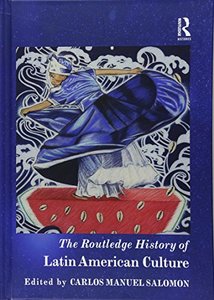Por favor, use este identificador para citar o enlazar este ítem:
https://repositorio.uca.edu.ar/handle/123456789/15530| Título: | Catholic social movements face modernity | Autor: | Lida, Miranda | Palabras clave: | IGLESIA CATOLICA; MOVIMIENTO SOCIAL CATOLICO; CATOLICISMO SOCIAL; SINDICALISMO CRISTIANO; HISTORIA DE LA IGLESIA; HISTORIA POLITICA | Fecha de publicación: | 2019 | Editorial: | Routledge | Cita: | Lida, M. Catholic social movements face modernity [en línea]. En: Salomon, C.M.(ed.). The Routledge History of Latin American Culture. Londres : Routledge, 2019. Disponible en: https://repositorio.uca.edu.ar/handle/123456789/15530 | Resumen: | Since the French Revolution, and particularly during and after the Industrial Revolu¬tion, it became a commonplace notion to associate the Catholic Church with coun¬terrevolution and traditionalism, through its contacts with reactionary aristocracies. Furthermore, in Latin America, the Church was strongly attached to colonial traditions and social structures, and thus proved in general quite reluctant to accept the changes brought about by independence from France (1804), Spain (1810-1824), and Portu¬gal (1822) as well as the liberal trends originating in Europe. The nineteenth century progressive thinkers, particularly those inclined to liberalism and socialism, had good reasons to mistrust the Catholic Church, and occasionally there was open confrontation with Catholic preachers and authors as if they were irreconcilable enemies. Catholic authors and their teachings tended to remain confined to Church circles and somewhat discredited. The Church was often accused of being a stronghold of the Ancient Rigilne, monarchical and reactionary, as well as an obstinate bulwark against modernization. Moreover, it remained decidedly opposed to the efforts to extend full political rights to the "populace," thus hindering the democratization process and, in particular, reject¬ing the demands of the nascent working classes for social justice and laws designed to improve the prevailing labor conditions. Throughout Latin America, the nations that attained political independence during the nineteenth century, national independences soon defied the political and economic privileges generally enjoyed by the Catholic Church as an inheritance from colonial times. In different degrees, new nation-states, most of them young republics, proceeded to change the old rules across the board: Some countries established a separation between religion and the state and proceeded to take over the extensive landed proper¬ties owned by religious orders and bishoprics; while other nations chose to secularize education and even marriage, creating civil service offices, abolishing the customary legal and juridical privileges and benefits of clergy, and so on. Those changes trans¬formed the traditional catholic identity of Latin American people; nevertheless, they haven't eroded it substantially, as we shall see... | Cobertura Espacial: | América Latina | URI: | https://repositorio.uca.edu.ar/handle/123456789/15530 | ISBN: | 9780367217839 | Disciplina: | CIENCIAS SOCIALES | Derechos: | Acceso restringido | Fuente: | Salomon, C.M.(ed.). The Routledge History of Latin American Culture. Londres : Routledge, 2019. |
| Aparece en las colecciones: | Libros/partes de libro |
Ficheros en este ítem:
| Fichero | Descripción | Tamaño | Formato | Login |
|---|---|---|---|---|
| catholic-social-movements.pdf | 830,68 kB | Adobe PDF | SOLICITAR ACCESO | |
| routledge-history-latin.jpg | 55,49 kB | JPEG |  Visualizar/Abrir |
Visualizaciones de página(s)
76
comprobado en 27-abr-2024
Descarga(s)
16
comprobado en 27-abr-2024
Google ScholarTM
Ver en Google Scholar
Altmetric
Este ítem está sujeto a una Licencia Creative Commons

